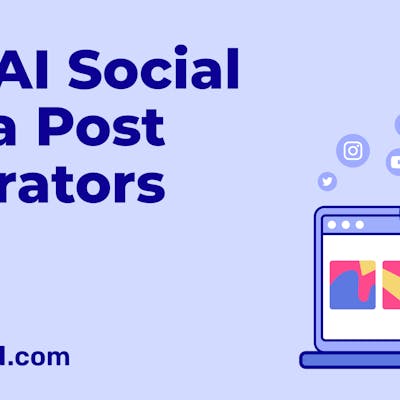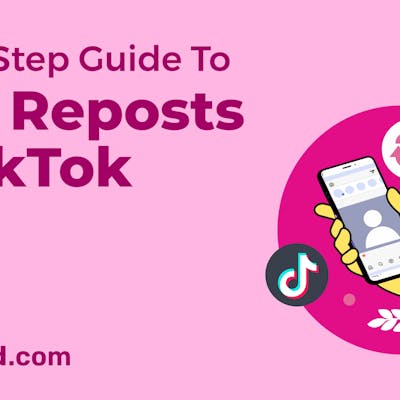
Do you need help dealing with the challenges of traditional project management techniques? Standard methods may sometimes work in a world with few resources and tight deadlines, causing companies to miss targets and deal with untapped potential.
Because of this, artificial intelligence (AI) is transforming project management by providing new solutions to old problems. How does it accomplish this? Organizations raise productivity by using AI tools.
Join us as we examine seven key ways for employing AI for project management, significantly reinforcing efficiency and outcomes.
Present and Future Directions of Project Management
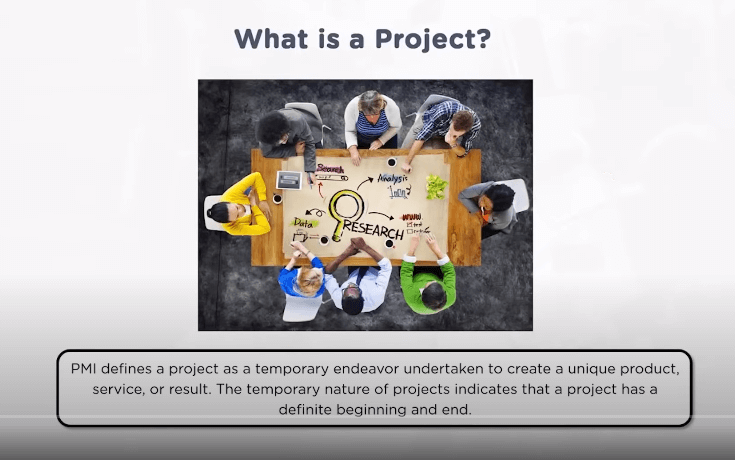
Screengrab from Simplilearn/YouTube
According to a recent survey, companies lose an average of 11.4% of investment due to poor project performance. The same study revealed organizations that downplay the strategic value of project management see a 67% higher chance of failing altogether.
Meanwhile, another report found that 25% of businesses need dedicated project management software. Paper, spreadsheets, or a combination of linked technologies are still the go-to tools for most firms. Issues arise because of this method: 54% of these firms cannot track key performance indicators (KPIs) in real time. Now, let’s think about the potential changes.
What effects might happen in updating project management? Its worth and efficiency may significantly improve with the addition of AI. This progress isn’t only about crunching numbers. It has real-world implications for society, businesses, and individuals.
As everyone knows, project management is about to radically shift due to the incorporation of AI and other technical advancements. The industry will experience a positive transformation, which will reinforce efficiency and lead to improved project outcomes.
Top 7 Ways to Use AI in Project Management
In this section, we’ll explore seven proven tactics for using AI for project management that can significantly improve its implementation and influence. The approaches range from better decision-making and resource allocation to forecasting and maintenance strategies.
1. Smarter Project Selection
Project selection and prioritizing in project management include choosing and rating projects based on their probable success and strategic importance. This method is critical for distributing resources effectively and ensuring that the most significant projects receive attention and financing.
Using Machine Learning (ML) can significantly improve these procedures. ML algorithms improve the accuracy of project success predictions by sifting through massive datasets in search of patterns that staff could easily overlook. Thanks to this technology, companies can pick the finest initiatives without bias.
2. Upgrading Project Processes
AI project management tools are revolutionizing project management, redefining how Project Management Offices (PMOs) function, and ushering in a new era of efficiency and innovation. For example, project tracking becomes even more accurate thanks to data analytics.
Besides providing real-time progress monitoring, they drastically lower risks by anticipating and resolving possible problems before they become more severe. These technologies also automate repetitive tasks like gathering client feedback and creating reports.
So, what could this mean for businesses? Project managers can now concentrate on more strategically oriented areas of their initiatives since the software will free up substantial time for them.
3. Project Leadership Transformation

Image from PMI.org
Numerous project managers find it scary to think about automating large parts of their work. Yet, success depends on their ability to accept and use these developments.
As previously mentioned, by using AI, they can focus on more analytical aspects of project management rather than menial duties, which will increase productivity and effectiveness. Today, project managers must build a broad skill set that includes digital competency, strong leadership, and strategic thinking in this new AI-driven world.
A project management degree or similar education can be beneficial in developing these skills. By furthering their education, managers prepare for a higher-level role, guaranteeing that project goals align with overall business objectives.
Additionally, project managers must know a lot about AI and similar technologies. This understanding ensures smooth communication between the human and AI team members and the more efficient incorporation of AI tools into initiatives.
In an increasingly AI-centric environment, managers who can expertly handle this technological transformation will successfully guide their teams.
4. Forecasting Future Demands
Accurate demand forecasting is critical for business strategy and operation. It means knowing what consumers will want in the future so businesses can change how they make and sell their goods to meet those needs. Forecasting is vital to corporate planning since this alignment lowers expenses and increases efficiency.
Yet, how can companies maintain a leading edge? Old methods may show patterns and trends, but studying past sales data presumes the future will be the same as the past. Thus, businesses doing this may need to catch up on new market developments or unforeseen events.
You can likewise obtain qualitative data through market research and consumer insights as an alternative. Then again, these sources may contain restrictions and biases.
Here’s where AI steps in, changing how demand planning works in project management. Algorithms can handle large-scale data processing, including customer behavior and market trends, reinforcing the accuracy of future demand predictions.
This innovative method accounts for many variables and adjusts to changing conditions. Helping organizations predict and meet industry demands.
5. Strategic Resource Utilization
How can businesses use resource allocation and capacity planning to run projects as smoothly as possible? It involves assigning equipment, workforce, and materials to specific timelines and tasks.
The goal is to make the best use of available resources, steering clear of excess and shortages, which can lead to project delays. But then again, how do you guarantee the effective use of resources?
Careful planning is crucial, with consideration given to resource availability, staff abilities, and the value of each task. Effective resource allocation boosts productivity and simplifies project workflows, whereas capacity planning estimates the materials required to finish an initiative on schedule. Such planning avoids wasteful spending and resource crises by matching supplies with project needs to lower risks and boost efficiency.
So now, adding AI to project management takes this to a whole new level. The tool can analyze enormous data volumes, including past patterns and predicted demands, to elevate capacity planning and resource allocation.
This technology aids companies in pinpointing and addressing resource shortfalls, guaranteeing every project has the proper resources at the right time, plus strengthening project success.
6. Next-Gen Testing Approaches
Adaptive testing is essential to project management, mainly when initiatives depend increasingly on various software platforms.
Project managers must prioritize early and frequent testing to ensure everything works well before going live. As initiatives become technologically advanced and integrated, the complexity and importance of testing grow.
However, what’s the future of testing in project management? Previously exclusive to large-scale projects, advanced testing methods are now available for countless initiatives. These modern systems transform testing by enabling early defect detection and including self-correcting features. Automatic testing and enhanced diagnostics will cut testing time and effort, reducing reworks and providing exceptional, user-friendly solutions.
Optimizing these next-gen testing methods is where AI shines. Project managers can attain more precise and effective testing results by incorporating AI tools into testing procedures.
AI can assess complicated systems, forecast problems, and suggest solutions, speeding testing and solidifying project outcomes. This technology pushes project management forward, making it more efficient, innovative, and successful.
7. Predictive Maintenance Insights
Present-day maintenance methods include predictive maintenance, which seeks to stop machine breakdowns before they happen.
Project managers can refine maintenance schedules, increase efficiency, and save expenses by employing sophisticated monitoring tools and data analysis. This guarantees seamless project execution and fewer disruptions by foreseeing issues.
But how does predictive maintenance make this possible? Using AI, it collects and examines past transactions, equipment performance, and sensor data to find trends and abnormalities that could indicate future failures.
With this knowledge, maintenance personnel can plan and make the necessary replacements or repairs at the right moment to prevent equipment failures and unplanned downtime.
Businesses integrating AI into predictive maintenance change how managers approach equipment care. The solution’s advanced analytics identify maintenance activities by assessing each piece of machine’s priority and danger level.
This way, companies direct repairs to the areas that require them the most, reducing the likelihood of catastrophic breakdowns and increasing equipment life. Project managers can strengthen the effectiveness of their work by shifting their focus from reactive to proactive maintenance with the support of AI.
Choosing the Right AI Project Management Tool
You must consider several factors when selecting an AI project management solution. Choosing a tool that can accommodate your project’s present and future requirements is critical. Let’s dive into the specifics.
- Capability: Pay attention to an AI project management tool’s workflow automation and integration features while choosing one. To increase your project’s productivity and accuracy, look for predictive analytics, automated task assignment, and natural language processing functions. These will make your initiatives more agile and data-driven.
- Scalability and Compatibility: Next, determine how well the platform fits your needs and if it’s scalable. It should be scalable to various project sizes and interface with current systems for efficient teamwork and data sharing across shareholders. Moreover, it should include file sharing, real-time communication, and dashboard options.
- User Interface and Ease of Use: Finally, confirm that the solution’s interface is simple to understand and operate. With drag-and-drop capability, user-friendly design, and simple visualizations that make complex data easier to understand, it should be accessible to all employees regardless of technical proficiency. This will boost team engagement and facilitate more efficient project management.
Charting a New Course with AI for Project Management
Businesses are handling projects in a new way thanks to the unparalleled efficiency and accuracy of integrating AI into project management. Today, companies operate complicated initiatives more quickly, thanks to AI tools. This change is redefining project management by providing dynamic answers to age-old problems.
Consider investing in solutions with user-friendly interfaces, scalability, and powerful automation to realize AI’s potential fully. Now is the moment to take action. Adopt AI in your project management techniques and see a dramatic improvement in your results. Let’s move forward and use AI to reinvent project management.



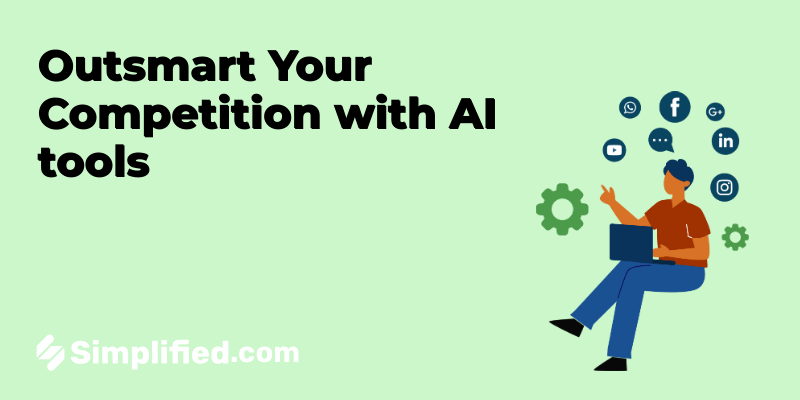

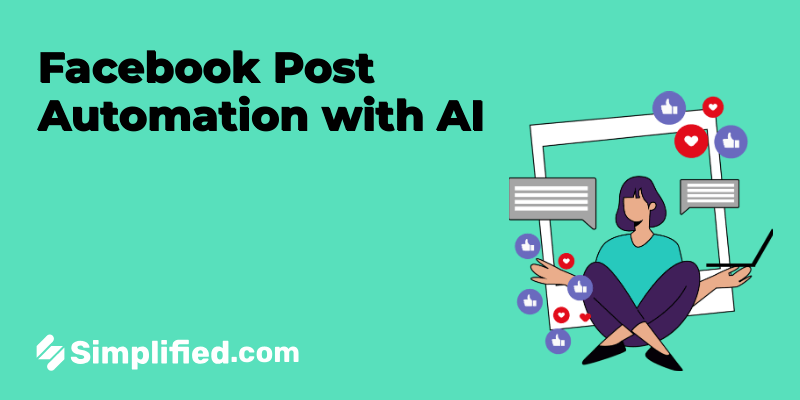


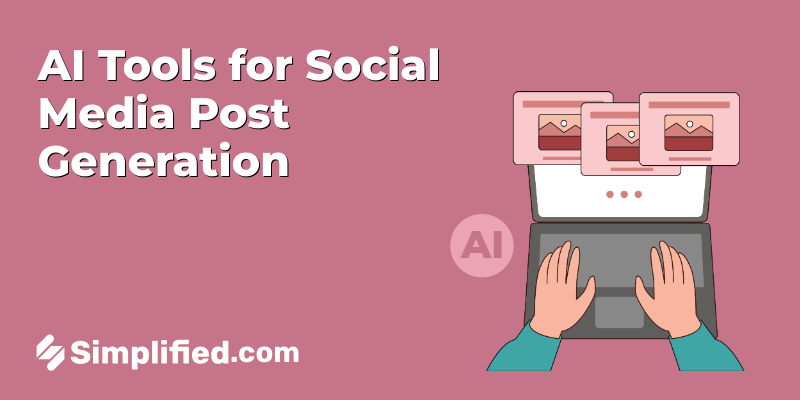
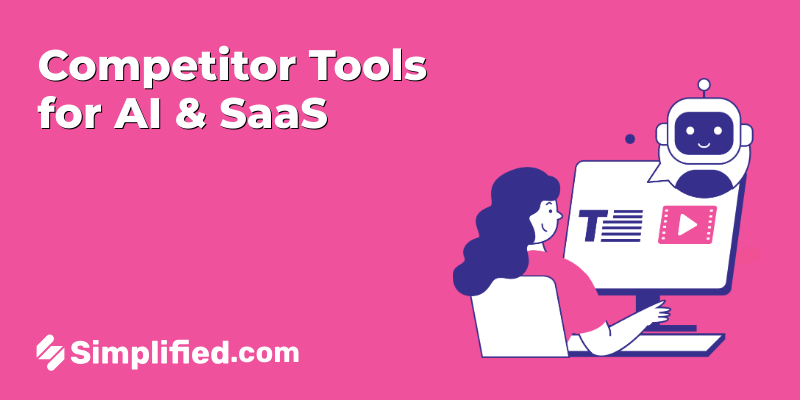




![13 Project Management Software & Tools for Creative Agencies [Free & Paid] 13 Project Management Software & Tools for Creative Agencies [Free & Paid]](https://siteimages.simplified.com/blog/Advertising-Agency-Project-Management-Softwares-01.png?auto=compress&fit=crop&fm=png&h=400&w=400)
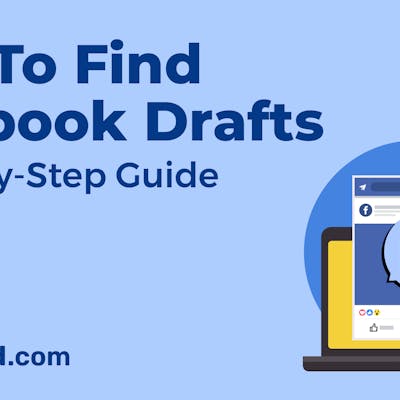
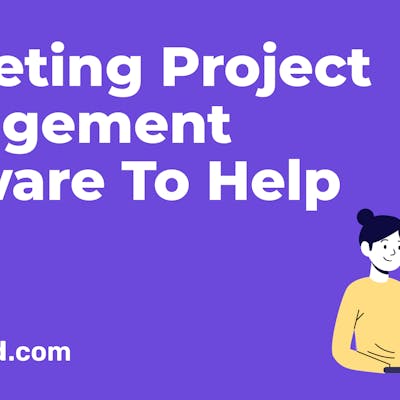
![How to Find Your Drafts on Instagram: Posts, Reels & Stories [2025] How to Find Your Drafts on Instagram: Posts, Reels & Stories [2025]](https://siteimages.simplified.com/blog/How-to-Find-Your-Drafts-on-Instagram-Ultimate-Guid-01-1.png?auto=compress&fit=crop&fm=png&h=400&w=400)
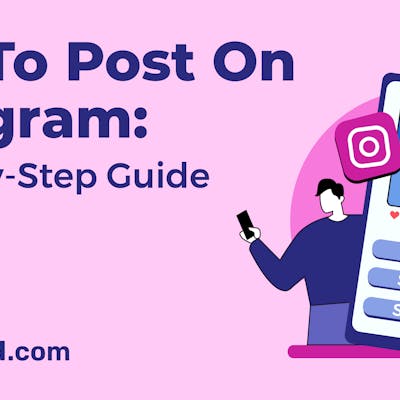

![20+ Top monday.com Alternatives In 2025 [Free & Paid] 20+ Top monday.com Alternatives In 2025 [Free & Paid]](https://siteimages.simplified.com/blog/Top-Project-Management-Tools-01-1.png?auto=compress&fit=crop&fm=png&h=400&w=400)
